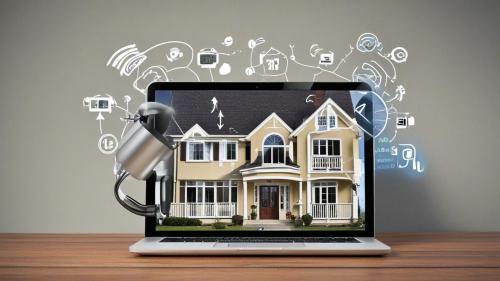We are living in an age where security systems have become as commonplace as locks on doors. But what drives our deep-seated need to protect our sanctuaries, to encase our homes with gadgets and alarms?
Let’s venture into the psyche of modern security and unravel its triggers, its psychology, and its profound secrets.
Our journey begins with the advent of home security, where risk was once simply a matter of strong bolts and tall fences. But as times have evolved, so too has the nature of threats and, subsequently, the complexity of our responses to them.
### Acing Anxiety
Security, in its essence, serves as a salve to our anxiety—a sense of control in an often unpredictable world. Psychiatric professionals suggest that these systems offer more than material protection. They provide relief from anxiety, a step away from the path of paranoia.
The alarm system, ever vigilant, allows peace of mind. These gadgets create a tangible boundary between ‘us’ and ‘the rest of the world’. Essentially, they help in defining safe spaces, feeding into our territorial instincts.
### Tech Temptation
As technology leaps bounds ahead, our propensity to embrace innovation seems innate. There’s an odd allure to the idea that someone might attempt to breach our digital fortress but fail. It fuels a narrative of resilience, confirming our belief in staying one step ahead.
From apps that allow real-time surveillance to AI-integrated solutions capable of distinguishing between a fluttering curtain and an actual intruder, homeowners are trading traditional security for tech-driven alternatives.
### The Marketing Machinery
Yet, behind this drive lies a powerful marketing engine. Security companies have capitalized on fear, selling peace of mind alongside control and safety.
A surge in home invasion movies, news stories, and crime statistics broadcasted loudly across media platforms feed into a perpetual state of unease—a fertile ground for security solutions to plant their seeds.
### Community Safety
On a communal level, these systems have also fostered shared consciousness about safety. Neighborhood watches have morphed into networks of shared CCTV feeds, local groups that can alert each other at the first sign of trouble.
Panic buttons and emergency services are only a tap away, linking residents into a cooperative defense network, bridging the gap between individual security and neighborhood welfare.
### Psychological Impacts
Research indicates that excessive reliance on security systems might lead to heightened stress and hyper-vigilance. For some, the sight of their own homes brimming with alarms and cameras might constantly remind them of potential dangers lurking.
Thus, while technology mitigates risk to some extent, it also shapes perceptions, much like a double-edged sword; comfort on one side, paranoia on the other.
Ultimately, our relationship with home security boils down to balance—a balance between acceptable risk and peace of mind, innovation and information overload, freedom and vigilance.
Home security systems are more than just a means of protection. They're a reflection of our modern fears, aspirations, and our continuous quest for a safe haven in an unpredictable world.
behind closed doors: the psychology of home security systems




